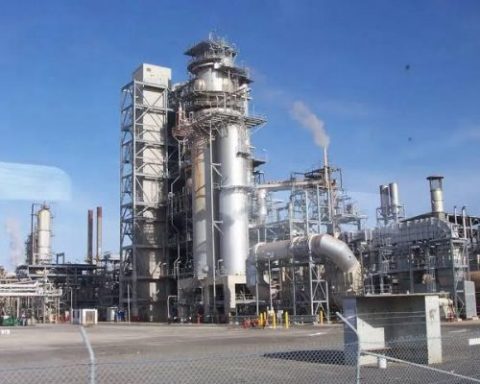The recent indication that Nigeria’s state-owned Port Harcourt, Warri, and Kaduna refineries may be sold off after an ongoing review of the plants is concluded has sparked mixed reactions.
While some hailed the move as a right step towards fostering efficiency in the management of the facilities, others called for retaining them as national assets, expressing misgivings over what could become of the companies in terms of serving public interest after they have been sold off to private investors.
Join our WhatsApp ChannelThis comes after the Group Chief Executive Officer of the Nigeria National Petroleum Company (NNPCL), Bayo Ojulari, in a recent interview with Bloomberg, hinted at the possibility of selling the refineries after a comprehensive internal review expected to be concluded by the end of 2025.
Amid the contestations, one question on the lips of many analysts and industry stakeholders is whether to sell off the refineries or continue spending on turnaround and Maintenance (TAM), which is the lesser evil for Nigeria’s energy future and economic stability?
The state-owned refineries have become a multi-billion-dollar quandary for the NNPCL. With massive investments in TAM yielding minimal results and a new proposal to sell these aging facilities, the country faces a critical decision.
The four refineries have a combined installed capacity of 445,000 barrels per day (bpd), but have operated far below capacity for years, despite billions of dollars spent on rehabilitation.
The Port Harcourt refinery briefly resumed operations in November 2024 after a $1.5 billion rehabilitation, but shut down again in May 2025 for maintenance. Located at Alesa Eleme in Port Harcourt, Rivers State, the refinery complex comprises two operational units established in 1965 and 1989 and with a combined installed capacity of 210,000 barrels per day. The older plant has a capacity of 60,000 barrels per day, while the newer plant has 150,000 barrels per day.
The Warri refinery (commissioned in 1978 with 125,000 bpd installed capacity) operated for only one month after its December 2024 resumption before another shutdown, despite $897.6 million in maintenance costs. The Kaduna refinery is still undergoing rehabilitation.
READ ALSO: Why Warri Refinery Remains Moribund After Millions Of Dollars Spent On Repair
In total, about $3 billion was approved between 2021 and 2023 for the repair of the refineries.
However, according to reports, the plants (Port Harcourt and Warri) collectively operated at just 42.23 per cent of capacity when functional earlier this year, producing more diesel than Premium Motor Spirit (petrol).
Complexity of Turnaround Maintenance and Staggering Costs
The NNPC’s refineries are old, with the Port Harcourt refinery being 60 years old, Warri (46 years), and Kaduna (44 years).
Speaking in the Bloomberg interview, Ojulari described the rehabilitation efforts as “a bit more complicated” than expected, citing outdated infrastructure and underperforming technologies as major hurdles. Earlier, President of Dangote Group, Aliko Dangote, had expressed a similar view that investing in the repair of the refineries, which are old and have outdated technology, is akin to “trying to modernise a car that was built 40 years ago.”
The financial burden of maintaining the refineries has become unsustainable. There are arguments that the cost of maintaining these outdated facilities would likely exceed the cost of replacing them with newer, more efficient technology.
Nigeria has spent approximately ₦11 trillion rehabilitating the refineries from 2010 to 2023, with about $6 billion spent on TAM contracts between 1993 and 2016, according to National Assembly reports. Despite this, the refineries still operate at low capacities, making further investment questionable.
The refineries’ failure to produce petroleum products over the years forced the country to resort to importation, which cost about $36 billion between 2013 and 2017. According to a report of the Nigeria Natural Resource Charter (NNRC), the amount the country spent on importing petroleum products in four years could have built four brand new refineries of similar capacity, with the 650,000 barrels per day processing Dangote refinery in Lagos, which cost $20 billion.
The report also indicated that NNPC’s monthly financial reports disclosed that between January and October 2019, the refineries recorded a cumulative loss of N123.25 billion while their capacity utilisation plunged.
Despite these massive outlays, the refineries contribute less than 10 per cent to Nigeria’s GDP annually and rank among the world’s refineries with the highest operating costs.
Comparison with Dangote Refinery
The Dangote Refinery, commissioned in 2024, has a capacity of 650,000 barrels per day, surpassing the combined output of the four state-owned refineries (445,000 bpd). Some analysts argue that investing in a brand-new refinery like Dangote’s seems more economically viable than pouring money into outdated NNPC facilities.
The Case for Selling the Refineries
With the NNPC now considering divestment as a strategic alternative, proponents argue that privatisation offers several advantages.
According to them, these include ending the fiscal drain on the economy caused by huge investments in maintenance and operational costs with no returns; increased efficiency of operations and better management of resources by private sector operators who prioritise profitability, and potential to attract foreign direct investment in the facilities with possible access to global expertise and technology transfers, further positioning the country as a refining hub.
While supporting the proposal to sell the refineries, some have called for a proper investigation of the funds invested in rehabilitating the facilities that failed.
Economist and energy expert, Mr Kelvin Emmmanuel, said: “It will be a travesty if the Attorney General of the Federation & the Chairman of EFCC allow the immediate past management and board of NNPC led by Mele Kyari to go Scot free without investigation and recommendation for prosecution.”
An economist and financial consultant, Olusegun, said: “ If that’s what it takes to make sense of its existence, then please do it. NNPCL has contributed immensely to turning Nigeria’s economy upside down. It’s amazing that the former GMD, Mele Kyari and his Directors are not already facing prosecution. Forensic auditing is a must.”
“Bayo Ojulari is right. NNPC refineries have become irredeemable cesspool of corruption, and a national disgrace. Sell those contraptions as scraps, fire the staff, and give Nigeria a fiscal breather,” Dr Vincent Ahonsi, former Country Director, Oxfam, said.
Some have expressed mixed feelings about the idea of selling the refineries due to inefficiency in management.
Former lawmaker and activist, Senator Shehu Sani, said the idea of retaining the refineries as national assets is good, considering that some countries have demonstrated that it is possible to efficiently run such state-owned facilities; however, the huge maintenance costs and inefficiency on the part of NNPCL make it imperative to dispose of them.
“I don’t like the idea of selling our refineries when other countries can efficiently run their refineries, but it looks like the lesser devil is to sell them so that we don’t have to spend another $7 billion to rehabilitate them. Anything about rehabilitation is financially scary in this country. I also hope the refineries will not go the way of the Discos,” Sani stated via his X handle on Saturday.
READ ALSO: Nigerian Govt Should Privatise Refineries, Invest In CNG – Oil Marketers
While reacting to the NNPCL GCEO’s comment, a Professor Emeritus of Petroleum Economics, Wumi Iledare, warned that the Federal Government must be careful in the privatisation process to avoid monopoly or what he described as “elite capture.”
In a statement on Saturday, Iledare observed that ownership is not the core problem, but inefficiency in the management of the facilities.
He stressed that “selling the refineries without tackling systemic governance failures could repeat past mistakes and threaten energy security.”
He recommended adopting models such as public-private partnerships and performance-based concessions, adding that they are consistent with the commercial spirit of the Petroleum Industry Act (PIA) 2021.











